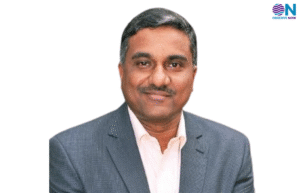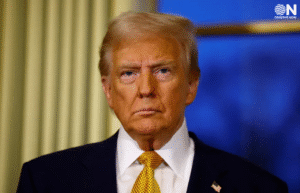Sexual wellness used to be a topic nobody openly spoke about in India, but now things are changing. More and more people are opening up to their needs and thinking about health in newer ways. This has created new opportunities, especially for startups, to help people learn about and care for their sexual well-being.
If market trends are to be believed, the Indian sexual wellness market which was worth $1.15 billion in 2020, is expected to grow to $2.09 billion by 2030. It is an annual increase of 5.8% – which is a substantial growth for an industry considered taboo by most of the population. Not only has this, in the last three years, the number of companies selling sexual wellness products in India tripled. Since the pandemic, more than 21 new companies have entered this space as more and more people have opted to invest in sexual wellness products online for their variety and discreet delivery. Currently, 44 sexual wellness companies in the country are actively promoting their products, and many more are operating secretly. All these firms collectively managed to attract $24 million of funding this past year, although almost half remain unfunded.
The Emerging Interest in Sexual Wellness Products
Sexual health in India has been an ongoing concern associated with quite a few stigmas and misconceptions. But, yes, a few changes are happening.
Mindset Changing: The young generation is now ready to talk about sexual wellness being an important part of health. India’s rapidly growing youth population and rising awareness is leading the way for a positive shift in sexual appetite.
Ease of Accessibility: E-commerce websites and discreet delivery have made sexual wellness products more accessible.
Higher Awareness: Public health and rising liberal media content have helped to lift much of the shame associated with sexual health. It has encouraged conversations on social media channels, and more creators have come out to share their experiences or address the general public’s concerns on the matter.
Rising Disposable Income: According to market analysis reports, India will continue to see a rise in the sexual wellness market, largely dependent on increased disposable income, urbanization, and awareness.
Challenges in the Sexual Wellness Industry
Much has been achieved over the last decade, and yet startups in this space face unique challenges on a day-to-day basis.
Cultural Resistance: Though urban India is opening up, in rural areas, taboos associated with sexual health are very deep-rooted. People are interested in knowing more about their sexual well-being or needs but are afraid of being caught by someone they know and made to feel guilty or ashamed.
Regulatory Hurdles: Mostly, sexual wellness products need to pass through the maze of regulatory requirements and approvals. India, as a country, is trying to accept this industry at all scales and levels, starting from ground to top bureaucratic level acceptance.
Consumer Skepticism: Most consumers do not look for solutions because they fear being judged or do not trust the brand. To conquer these challenges, startups are creating transparent processes, building community, and partnering with healthcare.
How Startups are Capitalizing on Demand?
The Indian startups are seizing the opportunity with a fresh new approach to satisfy an open-minded and health-conscious customer base. These e-commerce platforms offer subtle and discreet access to a vast array of products, including condoms, contraception, intimate care products, and sexual pleasure products.
Most of these startups popularize knowledge about sexual wellness through digital platforms, offering professional advice and information and helping their customers make appropriate decisions. Such services are becoming more tailored, especially with new-age AI-driven consultation and subscription models that further engage customers one-on-one. Companies that have been breaking the taboos on sexual health are taking once-stigmatized markets and creating communities to help people talk, engage, and move forward in a safe, open space.
Start-ups Revolutionizing the Industry
Sexual awareness has been around for a while now, with discrete medical practitioners hidden somewhere in the city. But startups are creating a voice that resonates with millions of people. Platforms like YouTube, Instagram, and several websites are creating an immersive, engaging, and vastly informational content library that is normalizing sexual well-being.
They are innovating not only in creating content but also in products, engagement methods, and leveraging content. How?
The digital space has created an area wherein the customer is not afraid of judgment and has imparted valuable information regarding his or her needs whether it is sexual performance or preference. Brands aren’t just selling products but also educating consumers. They are equipping the consumer with scientifically proven information about sexual health, which enables them to choose what’s best for them.
From organic lubricants to modern contraceptives and intimate wellness products, these startups cater to every Indian’s needs. While there is innovation in products, these startups have to hold themselves up to the highest standard of safety and quality to ensure that customers feel seen – which, in turn, is revolutionizing the space due to rigorous competition amongst different brands.
While innovative products play a crucial role in attracting an audience, technology has been a game-changer for sexual wellness startups. Personalized recommendations, AI-driven consultations, and a subscription model have ensured customer comfort, engagement, and overall sexual wellness.
Where are the Startups headed?
The sexual well being startups are all set to revolutionize the space. Several startups have been able to leverage the growing demand to raise millions to invest in research and development of new products, and create marketing campaigns to build more awareness around the industry.
The main idea is to make people capable of taking responsibility for their health and needs. While there is huge commercial potential in this industry, it should be considered a step forward in the right direction — as more and more people will be able to do, choose, and act on what’s best for them.
Author: Karan Bhargava, Founder & CEO, sehatUP
Disclaimer: The views expressed in this article are solely those of the author and do not necessarily reflect the opinions or policies of ObserveNow Media. The author is solely responsible for ensuring the accuracy, completeness, and validity of the information presented, encouraging readers to independently verify and seek professional advice if needed.





























